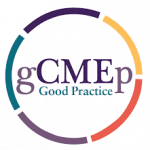CME-CPD Accreditation
Accreditation Statement & Credit Designation
European Accreditation Council for Continuing Medical Education (UEMS/EACCME)
The 63rd Annual PTCOG Conference, Buenos Aires, Argentina 02/06/2025 – 07/06/2025, has been accredited by the European Accreditation Council for Continuing Medical Education (EACCME®) with 34.0 European CME credits (ECMEC®s). Each medical specialist should claim only those hours of credit that he/she actually spent in the educational activity. The EACCME is an institution of the European Union of Medical Specialists (UEMS): www.uems.eu
American Medical Association (AMA)
Through an agreement between the European Union of Medical Specialists and the American Medical Association, physicians may convert EACCME credits to an equivalent number of AMA PRA Category 1 Credits™. Information on the process to convert EACCME credit to AMA credit can be found at https://www.ama-assn.org/education/ama-pra-credit-system/agreement-european-union-medical-specialties-uems
Royal College of Physicians and Surgeons of Canada
Live educational activities, occurring outside of Canada, recognized by the UEMS-EACCME for ECMEC credits are deemed to be Accredited Group Learning Activities (Section 1) as defined by the Maintenance of Certification Program of The Royal College of Physicians and Surgeons of Canada. For more information, visit https://www.royalcollege.ca/ca/en/cpd/royal-college-accredited-cpd-providers/international-accreditation-agreements.html
Medical Dosimetrist Certification Board
The 63rd Annual Conference of the Particle Therapy Cooperative Group has been accredited with 57.5 units from the Medical Dosimetry Certification Board (MDCB). This recognition underscores our commitment to providing top-tier educational opportunities for medical dosimetrists worldwide.
The Medical Dosimetry Certification Board (MDCB), formally incorporated in 1988, is the recognized certifying agency for Medical Dosimetry in the United States. The mission of the Medical Dosimetrist Certification Board is to steer the advancement of the Medical Dosimetry profession by establishing certification and continuing education standards to enhance quality patient care: https://mdcb.org/
- Please note that certificates will not be issued at the conference. Instead, the provider will send an attendance to MDCB. This feature allows for the auto-population of CMD learning plans/transcripts with completed and accepted activities.
Credit Breakdown
Each participant should claim only those hours of credit that he/she actually spent in the educational activity.
| Day | Maximum Credits |
| 02/06/2025 |
7.0 |
| 03/06/2025 |
7.5 |
| 04/06/2025 |
6.0 |
| 05/06/2025 |
6.5 |
| 06/06/2025 |
7.0 |
| Total Credits: |
34.0 |
Educational Objectives
After participating in this educational event, learners should be able to:
- Address individual needs in compliance with their Continuous Professional Development (CPD) plan.
- Analyze the rationale, physics, and radiobiology underlying particle therapy modalities.
- Compare system specifications, selection criteria, and purchasing considerations for proton therapy technologies.
- Evaluate patient selection criteria, including pediatric and re-irradiation cases, for optimal use of particle therapy.
- Apply current strategies for treatment planning, motion management, and imaging alignment in particle therapy.
- Interpret uncertainties and mitigation techniques in physics, biology, and patient motion during particle therapy delivery.
- Discuss the integration of FLASH therapy, BNCT, and spatial fractionation techniques in clinical workflows.
- Design quality assurance strategies and dosimetry plans using modern QA tools and microdosimetry techniques.
- Explore radiobiological mechanisms and the tumor-immune microenvironment influenced by particle therapy.
- Collaborate with multidisciplinary teams across physics, biology, and clinical specialties to improve outcomes in particle therapy.
Target Audience
The 62nd Annual Conference of the Particle Therapy Co-Operative Group is the global meeting place for scientists and clinicians in the field of particle radiotherapy. Because of the diverse, clinically focused educational offering, participants can tailor the curriculum to meet the needs of international clinicians of all levels of experience.
To Receive Your CME/CPD Certificate
The CME/CPD certificate will be available after completing the online evaluation and credit claiming procedure. The process takes about 5 minutes. We thank you for your feedback, as it is an important part of CME/CPD accreditation and helps improve future educational offerings.
Before 7th of July:
- Access the online system via the following link
- Complete the anonymous online evaluation
- Enter your username (conference registration email) and password (Registration ID) during the credit-claiming process
- Complete the credit claim form and submit
- The CME/CPD certificate will be available for download and retained for your records.
- Please note that web browsers Mozilla Firefox 2.X or higher, or Google Chrome are recommended. Mobile devices are not supported.
- Kindly note that the PTCOG 2025 online evaluation will be active on the last day of the meeting. You will then be able to access it and claim your CME/CPD certificate.
Disclosure and Resolution of Personal Conflicts of Interest
In accordance with CME/CPD accreditation criteria and standards for commercial support to ensure balance, independence, objectivity, and scientific rigor, those in control of the educational content must disclose potential or actual conflicts of interest. Disclosure information is evaluated and conflicts of interest are resolved. Disclosure is made to participants prior to the activity. Participants will be asked on the evaluation to assess the objectivity and independence of the event.
- View disclosure information HERE.
Industry Support Disclosure
This event is supported, in part, by funding from industry. All support is managed in strict accordance with CME/CPD accreditation criteria and standards for commercial support. Appropriate acknowledgment of all supporting organizations is made in the program guide, on the event website, and with signage during the event.
Commitment to the Highest Standards in CME/CPD
Kenes is committed to being a valuable and knowledgeable partner in the design and delivery of educationally strong, independent, transparent, and effective CME/CPD programmes. Kenes is a proud member of the Good CME Practice Group (gCMEp), a member organisation contributing to improving health outcomes by:
 |
|
Membership in the Good CME Practice Group illustrates Kenes commitment to high standards and knowledgeable partnership with its clients in the design and delivery of medical events.